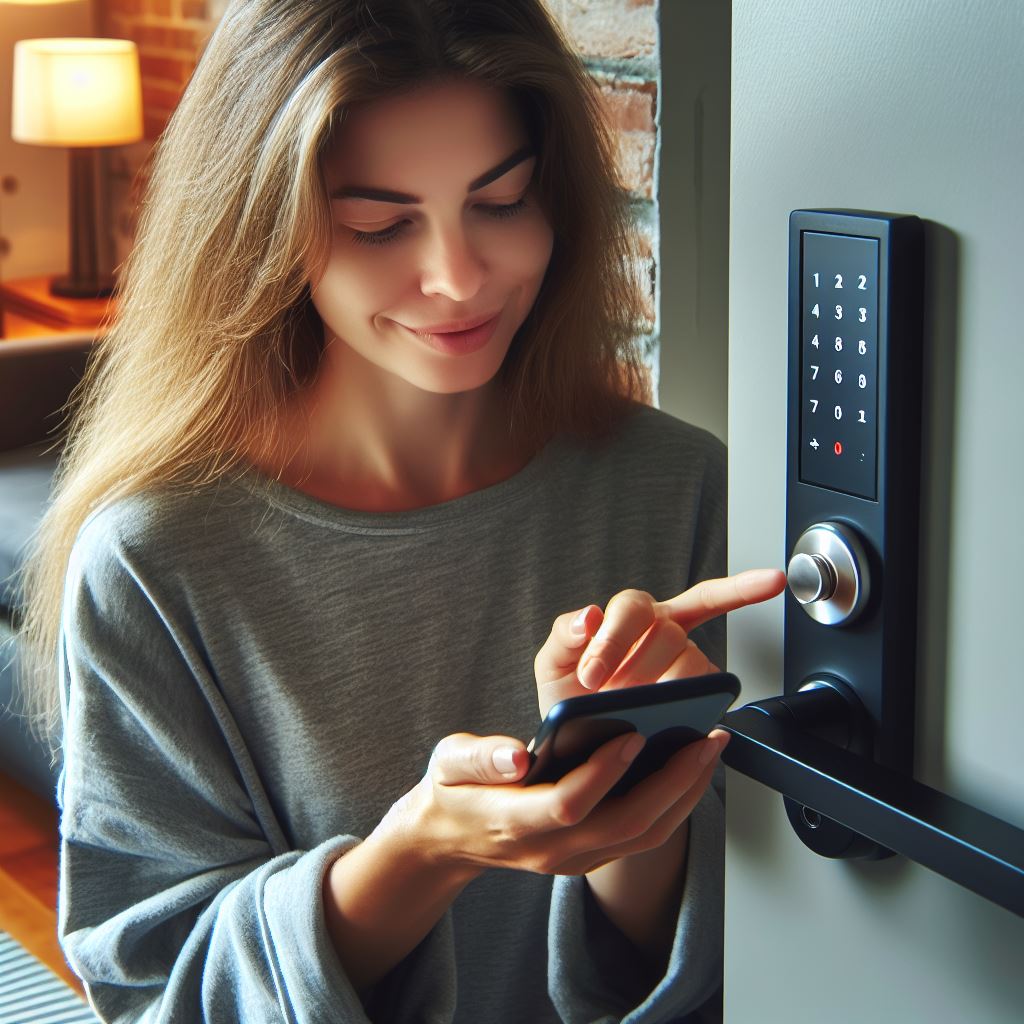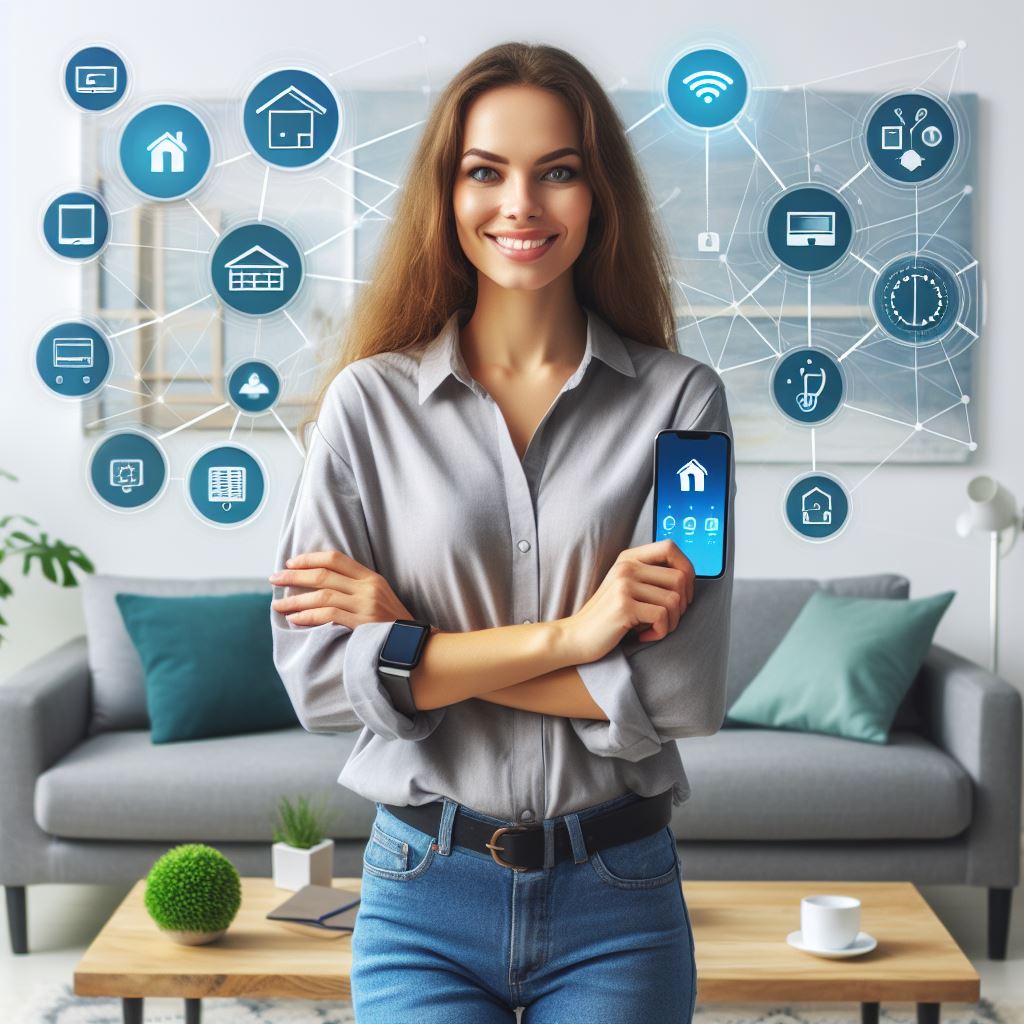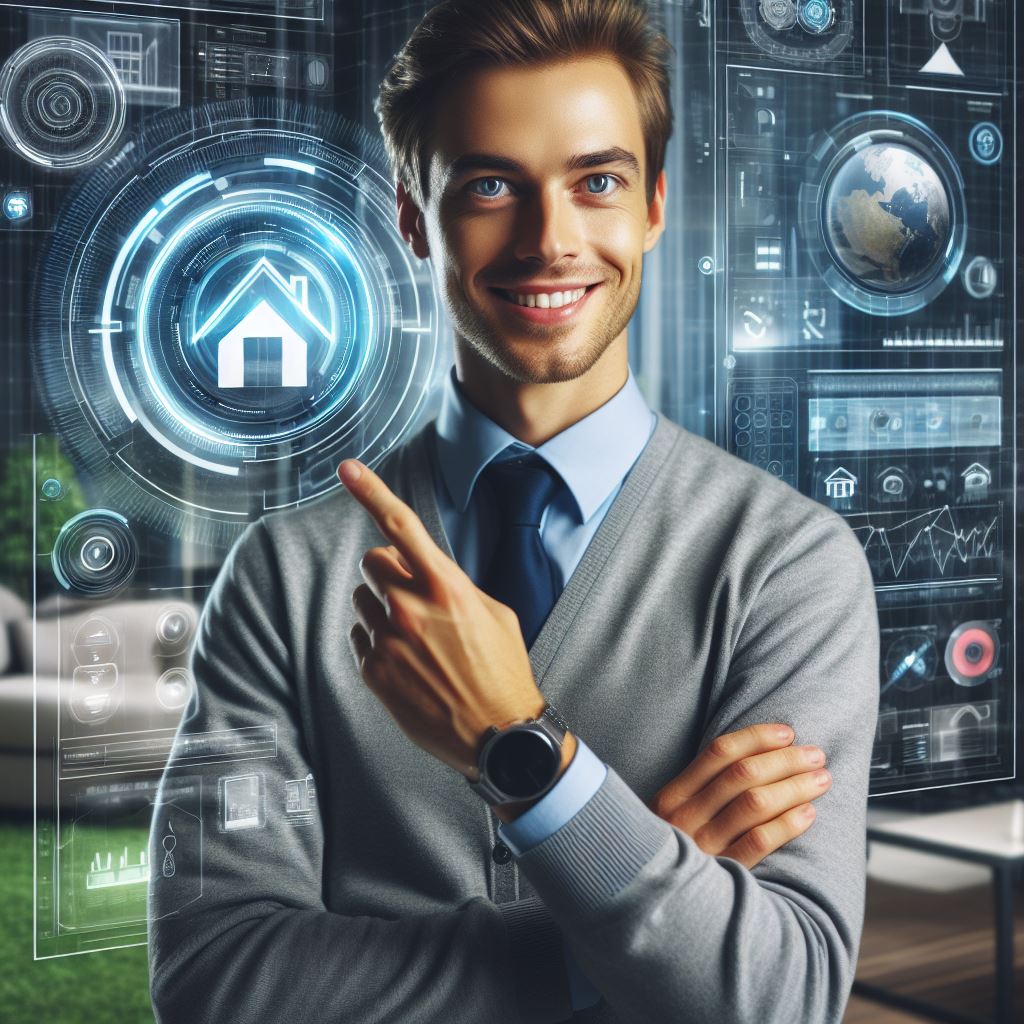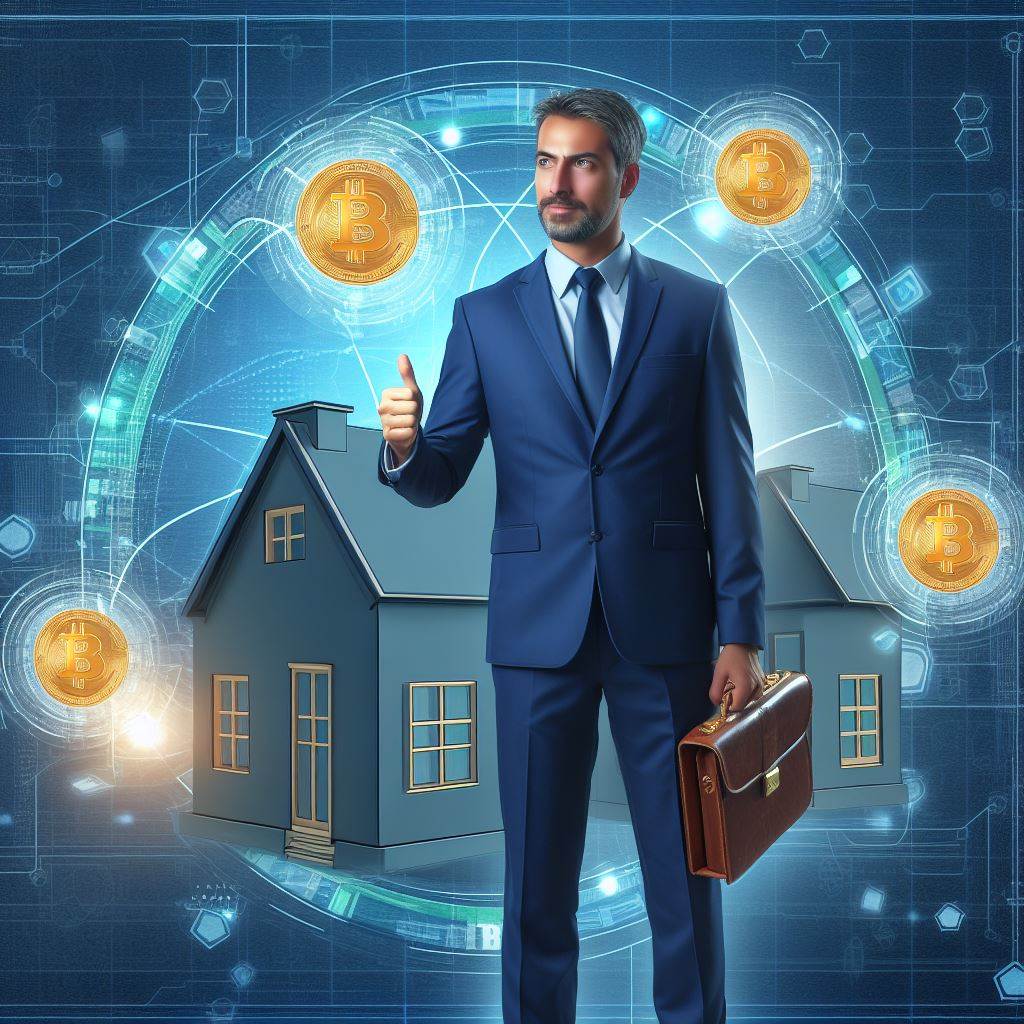Introduction
Rental spaces have evolved significantly over the years, thanks to the rapid advancements in technology.
The integration of smart tech has revolutionized these spaces, making them more efficient and convenient for tenants.
Smart tech refers to the use of technology to enhance various aspects of daily life, from appliances to security systems.
This blog post explores the definition of smart tech and the importance of incorporating it into rental spaces.
Smart tech encompasses a range of devices and systems that utilize cutting-edge technology to streamline processes and improve functionality.
These include smart thermostats, lighting systems, door locks, and even voice-controlled virtual assistants.
By utilizing these technologies, tenants can experience increased energy efficiency, improved security, and enhanced comfort.
The incorporation of smart tech in rental spaces is essential for several reasons.
Firstly, it allows tenants to have greater control over their living environment.
With smart tech, they can remotely manage appliances, adjust temperature settings, and control lighting, offering a personalized and comfortable experience.
Secondly, smart tech promotes cost-effectiveness by optimizing energy usage and reducing utility bills.
Devices like smart thermostats learn tenants’ behavior and adjust settings accordingly, ensuring energy is not wasted when the space is unoccupied.
In fact, the integration of smart tech in rental spaces is becoming increasingly important. It enhances comfort, convenience, and cost-effectiveness for tenants.
By embracing smart tech, property owners can attract a wider range of tenants and stay ahead in a rapidly evolving market.
In the subsequent sections, we will delve deeper into the specific technologies driving this revolution and their benefits in rental spaces.
Transform Your Real Estate Decisions
Unlock personalized real estate insights crafted just for you. Get actionable advice designed to amplify your success.
Get StartedBenefits of Smart Tech in Rental Spaces
Smart technology has become a game-changer in the rental industry, transforming traditional living spaces into modern, efficient, and secure environments.
The integration of smart devices brings a myriad of benefits to both tenants and landlords, revolutionizing the way we experience rental spaces.
Increased Energy Efficiency
One of the primary advantages of smart technology in rental spaces is the significant boost in energy efficiency.
Smart thermostats, lighting systems, and appliances enable tenants to monitor and control their energy consumption seamlessly.
With automated temperature adjustments and smart sensors optimizing lighting, energy waste is minimized.
This not only benefits the environment but also results in cost savings on utility bills for both tenants and landlords.
Improved Security and Safety
Smart security systems have redefined the concept of safety in rental spaces.
Advanced surveillance cameras, smart door locks, and motion sensors provide enhanced protection against intruders.
Additionally, smart smoke detectors and carbon monoxide alarms offer early warnings in case of emergencies, reducing the risks associated with fire and gas leaks.
The integration of these technologies not only keeps tenants safe but also contributes to lower insurance premiums for landlords.
Enhanced Convenience and Comfort
The convenience offered by smart home devices is unparalleled.
Tenants can remotely control various aspects of their living space, from adjusting the thermostat to managing home entertainment systems.
Voice-activated assistants like Amazon’s Alexa or Google Assistant add an extra layer of comfort by allowing residents to perform tasks with simple voice commands.
The integration of smart home hubs ensures a seamless and interconnected living experience, making daily life more enjoyable and stress-free.
Showcase Your Real Estate Business
Publish your company profile on our blog for just $200. Gain instant exposure and connect with a dedicated audience of real estate professionals and enthusiasts.
Publish Your ProfileCost Savings for Tenants and Landlords
Smart technology doesn’t just enhance the living experience; it also translates into tangible cost savings.
Efficient energy use leads to lower utility bills for tenants, while landlords benefit from increased property value and reduced maintenance costs.
The longevity of smart appliances and systems minimizes the need for frequent replacements, contributing to long-term financial gains for both parties involved.
In fact, the adoption of smart technology in rental spaces brings about a myriad of benefits, ranging from energy efficiency to improved safety and enhanced convenience.
As the rental industry continues to evolve, integrating smart tech is not just a luxury but a necessity for creating modern, sustainable, and economically viable living spaces.
Read: Noise Ordinances and Rental Properties: A Guide
Popular Smart Tech Devices for Rental Spaces
In the ever-evolving landscape of rental spaces, the integration of smart technology has become a game-changer, enhancing convenience, security, and energy efficiency for both landlords and tenants.
Let’s delve into the top-notch smart devices that are reshaping the rental experience.
Smart Thermostats
Gone are the days of manually adjusting temperatures.
Smart thermostats like Nest and Ecobee have taken center stage, allowing tenants to control their indoor climate remotely.
This not only fosters a comfortable living environment but also contributes to significant energy savings by optimizing heating and cooling systems based on occupancy patterns.
Smart Locks and Security Systems
Security takes precedence, and smart locks are at the forefront of innovation.
Tenants can now bid farewell to traditional keys, using keyless entry systems that can be controlled through smartphones.
Paired with comprehensive security systems, these devices provide real-time monitoring, ensuring a heightened sense of safety for residents.
Smart Lighting Solutions
Lighting plays a pivotal role in shaping the ambiance of a living space.
Smart lighting solutions offer tenants the ability to customize lighting moods, set schedules, and even change colors with a tap on their smartphones.
Energy-efficient LED bulbs integrated with these systems contribute to reduced utility costs, aligning with eco-conscious living.
Voice-Activated Assistants
Enter the era of hands-free living with voice-activated assistants like Amazon’s Alexa or Google Assistant.
These virtual aides can perform various tasks, from adjusting smart thermostats to playing music or providing weather updates.
Their integration not only adds a touch of futuristic sophistication but also streamlines daily routines.
Smart Appliances
The kitchen is no exception to the smart revolution.
Smart refrigerators, ovens, and dishwashers equipped with connectivity features offer tenants the luxury of remote monitoring and control.
From preheating the oven on the way home to checking the contents of the fridge via a smartphone app, these appliances redefine convenience.
As rental spaces embrace the smart tech wave, tenants find themselves immersed in a world where efficiency, security, and comfort converge seamlessly.
The incorporation of these smart devices not only elevates the overall living experience but also positions rental spaces at the forefront of the technological revolution.
Read: Electrical Safety: Maintenance Must-Dos

Challenges and Considerations in Implementing Smart Tech
As the world of rental spaces embraces the wave of smart technology, property managers and landlords encounter a unique set of challenges.
The seamless integration of smart tech into rental spaces requires careful consideration of several factors.
Compatibility Issues
One of the primary challenges faced is the compatibility of different smart devices.
With an array of brands and models flooding the market, ensuring that these devices work seamlessly together can be a daunting task.
Showcase Your Real Estate Business
Publish your company profile on our blog for just $200. Gain instant exposure and connect with a dedicated audience of real estate professionals and enthusiasts.
Publish Your ProfileProperty managers must meticulously plan the smart infrastructure to avoid potential conflicts and create a cohesive environment.
Establishing compatibility protocols and guidelines is essential to prevent a fragmented ecosystem that could undermine the efficiency of smart solutions.
Privacy Concerns
The implementation of smart technology in rental spaces inevitably raises privacy concerns among tenants.
From smart locks monitoring entry and exit times to sensors tracking energy usage, tenants may feel their personal space is increasingly under surveillance.
Addressing these concerns requires transparent communication about the purpose and extent of data collection.
Implementing robust security measures and obtaining explicit consent from tenants are crucial steps in building trust and ensuring their privacy is respected.
Cost Implications
While smart technology offers numerous benefits, the initial investment can be substantial.
Property managers must carefully weigh the cost implications of implementing smart solutions against the long-term advantages.
From the installation of smart locks to the deployment of energy-efficient sensors, a comprehensive cost analysis is essential.
However, it’s crucial to emphasize that these investments often result in energy savings, improved security, and enhanced tenant satisfaction over time, justifying the upfront expenses.
Training and Support for Tenants
Introducing smart technology into rental spaces requires tenants to adapt to new tools and systems.
Property managers should provide comprehensive training sessions and ongoing support to ensure tenants can harness the full potential of the smart features.
This includes educating them on the functionalities of smart devices, troubleshooting common issues, and offering a responsive support system.
A well-informed tenant base not only enhances the overall user experience but also minimizes potential disruptions caused by technological hiccups.
In a nutshell, while the integration of smart technology into rental spaces promises innovation and efficiency, addressing compatibility issues, privacy concerns, cost implications, and providing adequate training and support are imperative for a successful implementation.
Property managers navigating this technological landscape must approach these challenges with a strategic mindset to unlock the full potential of smart tech in rental spaces.
Read: Lead Paint Regulations: Ensuring Safety in Older Homes
Successful Case Studies of Smart Tech Implementation
Apartment complexes using smart thermostats and energy monitoring systems
Apartment complexes across the country are embracing the power of smart technology to revolutionize rental spaces.
One successful implementation involves the use of smart thermostats and energy monitoring systems.
By installing these devices in every unit, property owners can easily control and monitor energy usage, resulting in significant cost savings.
Tenants also benefit from the convenience of adjusting temperatures from their smartphones, ensuring optimal comfort.
This implementation not only improves energy efficiency but also reduces environmental impact, making it an attractive option for eco-conscious renters.
The success of this case study has led to a growing trend of adopting smart thermostats and energy monitoring systems in the rental industry.
Landlords utilizing smart locks and video doorbells for enhanced security
Another successful case study of smart tech implementation in rental spaces is the use of smart locks and video doorbells by landlords.
By replacing traditional lock and key systems with smart locks, landlords can provide tenants with secure and convenient access to their rental units.
Smart locks offer features like keyless entry, remote access control, and temporary digital keys for guests.
Video doorbells, on the other hand, enhance security by allowing tenants to monitor and control who enters the premises.
It provides an additional layer of protection against thefts, break-ins, and unwanted visitors.
Landlords who have implemented these smart security solutions have experienced a reduction in unauthorized access incidents and increased peace of mind for both themselves and their tenants.
Homeowners renting out smart homes with integrated systems
Smart homes, equipped with integrated systems that control various aspects of the house, have become popular among homeowners who rent out their properties.
Showcase Your Real Estate Business
Publish your company profile on our blog for just $200. Gain instant exposure and connect with a dedicated audience of real estate professionals and enthusiasts.
Publish Your ProfileThese integrated systems include smart lighting, temperature control, entertainment, and security systems.
By offering these features, homeowners can attract tech-savvy renters who seek convenience and modern living experiences.
Apart from attracting tenants, smart homes also allow homeowners to remotely manage the property, monitor energy usage, and ensure the security of their investment.
Successful case studies of homeowners renting out smart homes have shown increased tenant satisfaction, higher rental values, and longer occupancy periods.
Basically, the successful implementation of smart technology in rental spaces has been observed through case studies involving various aspects such as energy monitoring systems, enhanced security measures, and integrated smart home features.
These success stories serve as inspiration for landlords and property owners to embrace smart tech and revolutionize the rental industry.
Read: Common Repairs in Rentals: A Landlord’s Guide
Tips for Landlords and Property Managers
In the ever-evolving landscape of rental spaces, the integration of smart technology has become a game-changer.
From enhancing security to improving energy efficiency, these innovations offer both landlords and tenants a new level of convenience.
To ensure a seamless transition to a smart rental space, landlords and property managers need to follow a strategic approach.
Assessing Tenant Needs and Preferences
Understanding your tenant’s needs and preferences is the first step towards implementing smart tech solutions.
Conduct surveys or engage in open communication to identify the features that would enhance their living experience.
Whether it’s a preference for smart thermostats or keyless entry systems, tailoring technology to meet tenant expectations ensures a positive response.
Researching and Selecting Reliable Smart Tech Devices
The market is flooded with smart devices, and choosing the right ones can be overwhelming.
Thorough research is essential to identify reliable, user-friendly gadgets that align with your property’s requirements.
Consider factors such as compatibility, security features, and the potential for future upgrades.
Investing in scalable technology ensures that your rental space remains at the forefront of innovation.
Providing Clear Instructions and Support
Implementing smart tech solutions is only effective if tenants know how to use them.
Provide comprehensive instructions, perhaps through an online portal or printed guide, ensuring that tenants can easily navigate the features of their new smart home.
Additionally, establish a support system for troubleshooting and assistance, fostering a sense of security and reliability.
Conducting Periodic Maintenance and Upgrades
Regular maintenance is crucial to keep smart devices operating optimally.
Schedule routine checks to identify and address any issues promptly.
Stay informed about software updates and emerging technologies, and be prepared to invest in periodic upgrades to keep your rental property at the forefront of the smart tech revolution.
By following these tips, landlords and property managers can navigate the integration of smart technology seamlessly, creating a modern, efficient, and attractive living experience for their tenants.
Conclusion
As we conclude our exploration of “Smart Tech: Revolutionizing Rental Spaces,” it’s crucial to recap the myriad benefits that this technological evolution brings to the rental industry.
The integration of smart technologies, such as IoT devices and automation systems, has vastly improved the overall tenant experience.
From enhanced security and energy efficiency to streamlined property management, these innovations offer a range of advantages.
Smart security systems, for instance, provide a heightened sense of safety for tenants, with real-time monitoring and alerts.
Energy-efficient solutions not only reduce utility costs but also contribute to a more sustainable and eco-friendly living environment.
Furthermore, the streamlined property management facilitated by smart tech enables landlords to address issues promptly, fostering better tenant-landlord relationships.
Showcase Your Real Estate Business
Publish your company profile on our blog for just $200. Gain instant exposure and connect with a dedicated audience of real estate professionals and enthusiasts.
Publish Your ProfileTo landlords and property managers who may still be contemplating the adoption of smart technologies, now is the time to embrace this transformative wave.
The benefits are not just limited to tenant satisfaction; there are also tangible gains in operational efficiency and cost savings.
Embracing smart tech means staying competitive in a rapidly evolving market.




